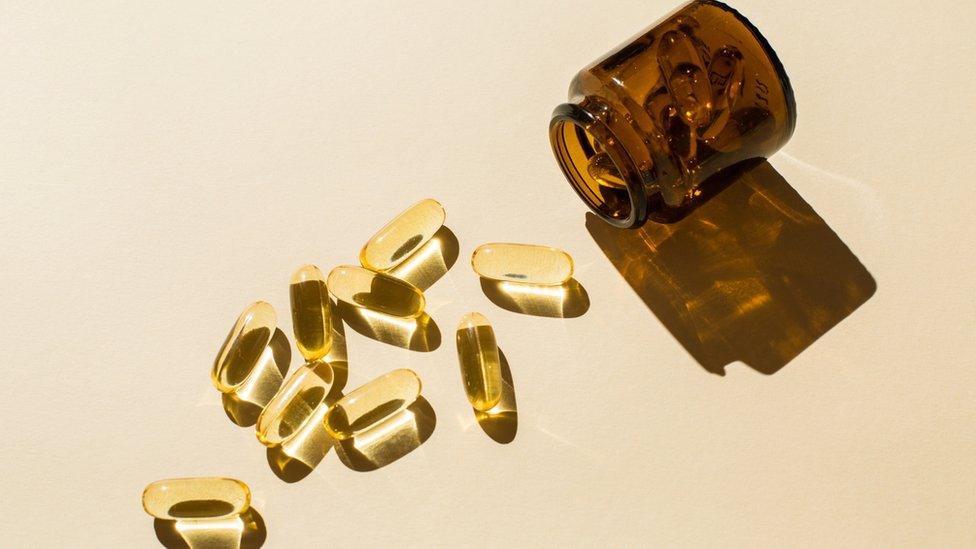Surrey coroner calls for change after 89-year-old's fatal vitamin D overdose
- Published

Too much vitamin D can lead to calcium building up in the body, according to the NHS
Surrey's coroner is calling for change to supplement packaging rules after an 89-year-old's fatal vitamin D overdose.
Following the death of David Mitchener, the coroner has written to the Department of Health and Social Care and the Food Standards Agency (FSA).
A report said the 89-year-old had been taking vitamin supplements for at least the nine months preceding his death.
Before his death, a test showed his vitamin D levels at 380, the maximum level recordable by the laboratory.
An inquest into Mr Mitchener's death at East Surrey Hospital in May 2023 ended in December.
It found Mr Mitchener died of vitamin D toxicity, hypercalcaemia, and cardiac and kidney failure.
The conclusion of the inquest was death by misadventure.
'Very serious risks'
Jonathan Stevens, assistant coroner in Surrey, raised concerns that vitamin supplements can have "potentially very serious risks and side effects when taken in excess" and that current labelling requirements do not require them to be written on packaging.
He also said the absence of appropriate warnings and guidance about dosage was a concern.
The FSA and the Department of Health and Social Care (DHSC) both said they would respond to the coroner on the report, which was also sent to the company which sold the supplements.
An FSA spokesperson said policy responsibility for food supplements in England was not directly within the remit of the FSA.
A DHSC spokesperson said: "Our deepest sympathies are with the family and friends of David Mitchener.
"We will consider the coroner's findings in full and respond in due course."
NHS guidance states that taking too many vitamin D supplements over a long period of time can cause hypercalcaemia, where too much calcium builds up in the body.
It said this can damage the kidneys and the heart, and recommends 10 micrograms per day for most people.

Follow BBC South East on Facebook, external, on X, external, and on Instagram, external. Send your story ideas to southeasttoday@bbc.co.uk or WhatsApp us on 08081 002250.